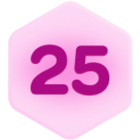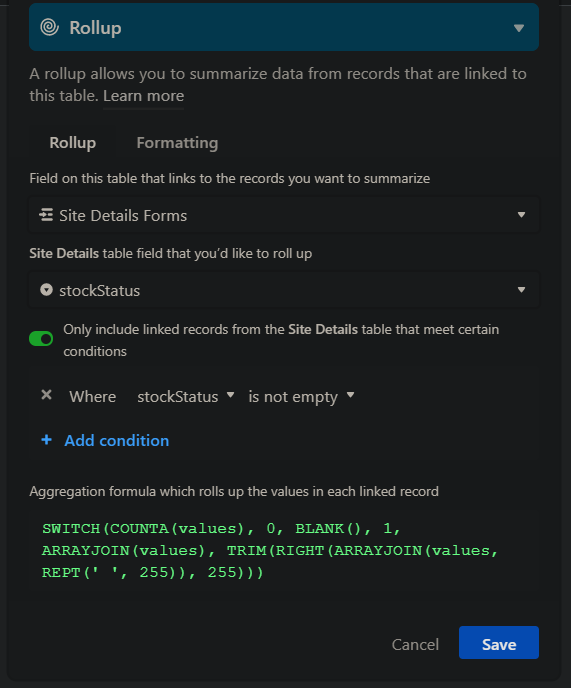I would like to use a ARRAY_FIRST() and a ARRAY_LAST() function, taking an array as argument, and resulting in the first (or the last) element of this array.
For now, I have to ARRAY_JOIN(my_array, ",") first, and the look after the string before the first “,”… which is a little tricky and need 2 formulas.
ARRAY_JOIN(my_array, ",") → my_joined_array (formula 1)
IF(FIND(',', my_joined_array) = 0, my_joined_array, LEFT(my_joined_array, FIND(',', my_joined_array) - 1)) → the final value (formula 2)
I would like to write ARRAY_FIRST(my_array) as an unique formula…
Thanks,
Rémi







